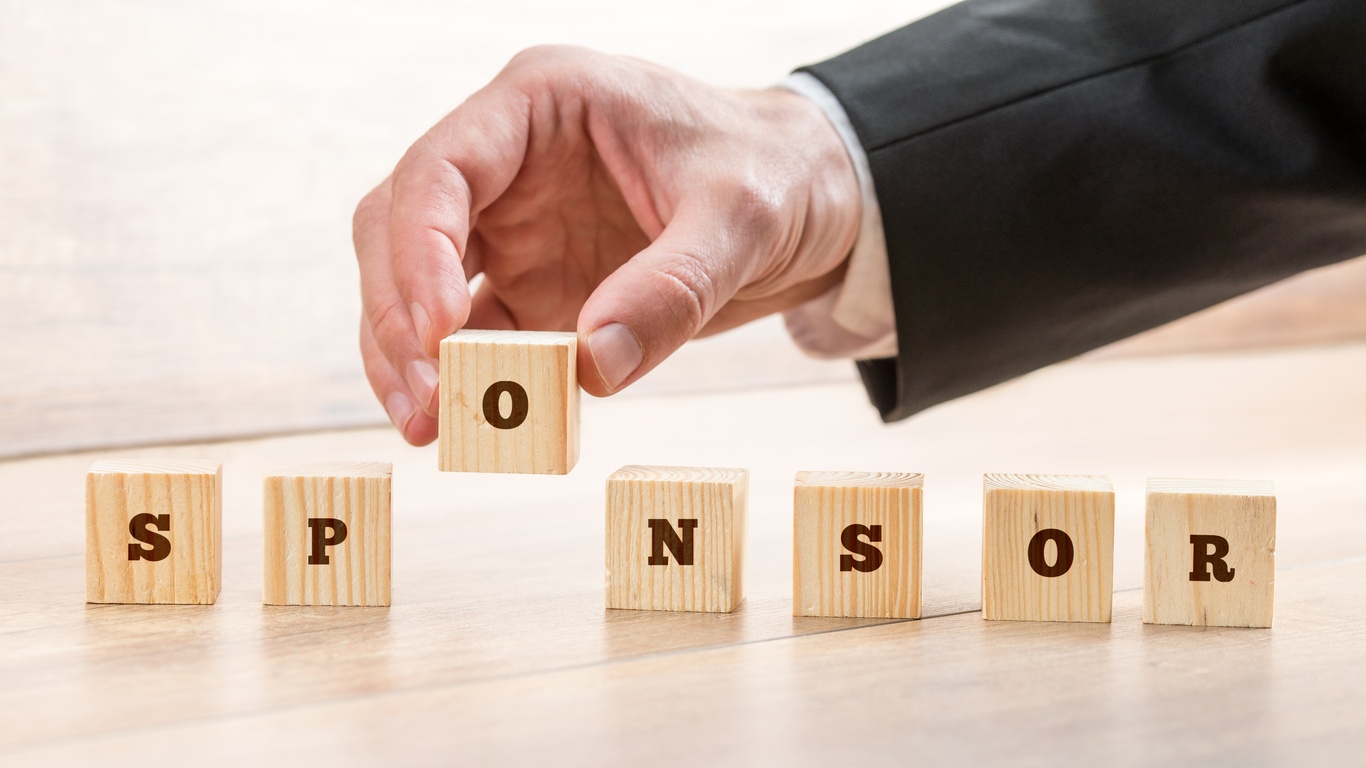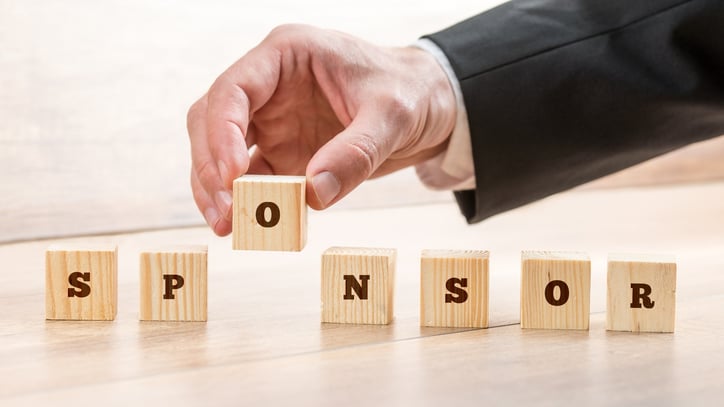Missouri Marketing Resource Blog

5 Reasons Your Event Sponsorships Haven't Gotten You Results

Event sponsorships straddle the line between marketing and offering meaningful involvement with your community or industry. One of the best ways to capture customers and improve your brand perception is through sponsoring an event. That is, it can be when executed properly. Today, we’ll take a quick look at the five biggest mistakes that will seriously hamper your ability to get results from event sponsorships and break down what you can do to fix them.
You’re Not Collecting Information.
Events are a great way to be seen and to increase your reach while putting a human face to your business. However, if you’re not making efforts to collect information from event attendees, you’re ultimately undermining all that hard work by neglecting a prime opportunity to open communication and build a relationship beyond the length of the event.
How to Fix It
Quite simply, you need to start asking for contact information. Of course, most attendees probably won’t give it out just because you ask for it — they don’t want to be sold to, and most people only want to give out their information if they’re going to get something out of it. At the very least, you need to frame it as a way to get more information about your business or about your involvement with the event. Signing up for your newsletter can also work, especially if it offers access to exclusive content or promotions. Depending on your industry, starting with their social media information could be a way to ease them into a connection.
However, the best way to get information at an event is to make it fun. The easiest method is a giveaway: providing their information grants the attendee an entry into one or more drawings for fun prizes. (This can also be a great way to draw them back to your booth.) Another way is to gamify your booth: it more thoroughly engages attendees in a memorable way, and they just have to provide their information to play. Be sure to choose a game that suits the format of the event to prevent making the wrong impression — trivia, for example, could be tailored to suit almost any tone, and if you take your contact forms with you out onto the floor, you could potentially play it anywhere at the event.
You’re Not Following Up on Information You Do Collect.
Having attendee information is good… but only if you do something with it. If the information just sits in a list, you may as well have never collected it to begin with. The entire purpose of collecting information is to foster a relationship with the attendee and make it easier to nurture the leads you’ve generated at the event. If you rely on the fact that you sponsored the event to do your heavy lifting, you’re going to miss out on a lot of opportunities.
How to Fix It
Make following up with contacts a part of your event plan. While designing the booth and selecting which employees will carry out tasks while you’re there, you can also be preparing great ways to make contact. For instance, if you bring someone from your social media team and you’re collecting social information, that team member could be tasked with following them on the appropriate channels and giving the attendee a shout out. (This could tie in well with gamification tactics because you’ll solidify the positive memory of the game with your brand.) Or if you’re utilizing tablets and electronic forms to accept information, be sure that the software you’re using can automatically add attendees to your database; later, you can have marketing outreach that’s personalized to that segment.
You Let Attendees Leave Empty Handed.
Frequency is just as important for events as it is for any other kind of marketing, but it needs to be utilized a little differently. If attendees stop at your booth, are they going to remember your brand once they walk away? The short answer is that unless you give them a reason to, no, they won’t, and it won’t matter if you’re the event’s sponsor.
How to Fix It
The game or contest is a good first step towards building event frequency, but even that isn’t going to leave enough of a lasting impression. That’s where swag comes in. This is as much of an investment as fliers and pamphlets about your brand, and if you choose the right items, you may even create interest throughout the event when other attendees see the swag.
The best items to choose are ones that attendees can use, preferably in the short term as well as year round, and of course, they ought to be branded. Keep attendee needs in mind when selecting items: chances are high they don’t need another cheap pen that they’ll probably lose anyway, but they might need a cell phone charger if they left theirs in their hotel (or worse, at home). Reusable water bottles or weather sensitive items (e.g., umbrellas) could also be winners. Don’t be afraid to think outside the box, either: some top items include free food, like the bucket of gummy bears the New York Post gave away one year. It’s fun, memorable, and a real conversation starter, while also providing a much-needed snack on long event days. Avoid tired kitsch like pens, USB drives, and paperweights.
You Don’t Engage with Attendees.
There’s nothing more off-putting at a brand booth than to see people sitting behind it looking either disinterested or too busy to interact with attendees. You could have the coolest booth in the world, but if an attendee has to fight for your attention, they might walk away and find a brand that will fight for theirs.
How to Fix It
All of our tips so far are a great step in the right direction; each is designed to engage attendees in a memorable way. However, nothing beats a little personal attention, especially when you’re not just another brand at the event — you’re the event sponsor. Be sure to mingle with the crowd and actually engage with them conversationally. This can open up opportunities to discuss why you chose to be a sponsor and reveal insights about potential customers.
You Aren’t Sponsoring Events that Relate to Your Target Customer.
Last but certainly not least, you aren’t going to get results from sponsoring an event that doesn’t make sense for your business or your customers. If the event doesn’t at least share demographics or market segments with your target audience, then it won’t matter how well you run your booth or mingle with attendees: they simply aren’t going to be interested in the products or services you offer.
How to Fix It
Start by really understanding your customers and target audience. What types of events are they attending? What causes are important to them? Look at where these interests intersect your business. For instance, it makes sense for a rock radio station to sponsor summer concerts that feature rock bands; not only does this directly relate to the industry they operate in, it directly relates to the interests of their audiences. However, it would make significantly less sense for a rock station to sponsor a classical music event. The industry is somewhat aligned, but the audience interest isn’t.
Another key way to relate to your target customers is by getting your business involved with a cause that they care about, or which is important to you or your business. Cause marketing is powerful, although it needs to be authentic, and can sidestep some of the issues that would crop up with the intersection of interests. Take the rock station as an example — a radio station doesn’t directly connect with finding a cure for childhood diabetes, at least on the surface. But perhaps one of the hosts grew up with childhood diabetes or has a child with it; suddenly it makes sense that the station would get involved with an event promoting awareness of the disease or helping to raise money for a cure.
Don’t rest on your laurels and assume that sponsoring an event is enough to see meaningful results. These five things will impact whether or not you successfully market to attendees. Review your current event marketing strategies to see if you’re making these critical mistakes. You can start to get results from event sponsorships just by realigning some of your tactics with the tips we’ve listed here.

